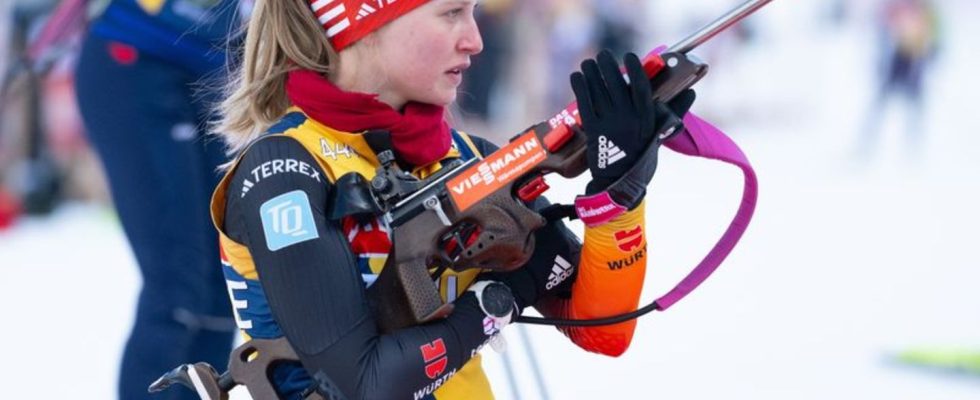World Cup in Ruhpolding
Debutant Tannheimer: The future of biathlon belongs to her
Appearing in the World Cup for the first time: Julia Tannheimer. photo
© Sven Hoppe/dpa
Julia Tannheimer is the next German biathlon hope. She will graduate from high school in June and can now compete in the World Cup. The development of young talent among women is positive.
The future belongs to Julia Tannheimer, a high school graduate who is only 18 years old. Biathlon sports director Felix Bitterling is convinced of this.
At the home game in Ruhpolding, Tannheimer is her next big hope in the sprint World Cup debut. “She has an extreme mindset for performance. That shows what her standards are,” said Bitterling. She is particularly strong in running; she recently won her first race in the second-class IBU Cup.
Positive development
The use of talent in the elite class is the result of a positive development among German women, which those responsible have been waiting for a long time. The pressure from the young generation is increasing, which hasn’t been the case for a long time. Because no one from the younger age group was imposing themselves, for a long time in the World Cup it almost didn’t matter what performance you delivered, you still stayed in it, as women’s coach Kristian Mehringer described.
That is different now. “We don’t need to worry. Of course that’s optimal for us as coaches,” said Mehringer: “I have to develop under pressure – and that’s optimal.”
In other nations such as France or Norway, talent is often introduced to the top level earlier than in Germany. It changes. “It’s also part of our strategy that we say we want to see the young people and specifically integrate them and give them the opportunity to get a taste of things,” said Bitterling.
For men, the offspring have a harder time
But patience is required. The young athletes still have to take “one or two steps” to become world leaders like Denise Herrmann-Wick, but we are optimistic,” said Mehringer. The five-time junior world champion Grotian is starting again in the IBU Cup after mixed performances. “This is not a punishment, but simply a move that we think is important,” Bitterling said.
For men, the offspring have a harder time. Athletes like Danilo Riethmüller (24) and Simon Kaiser (24) would be good enough for the World Cup, as national coach Uros Velepec said. But since the standard in the A team is higher than before, they don’t get a chance yet. Younger ski hunters also have a difficult time. Velepec hopes that this does not lead to some people quitting biathlon. “I hope that the boys stay motivated at 18, 19, 20 years old. They have to get through these difficult years.”

